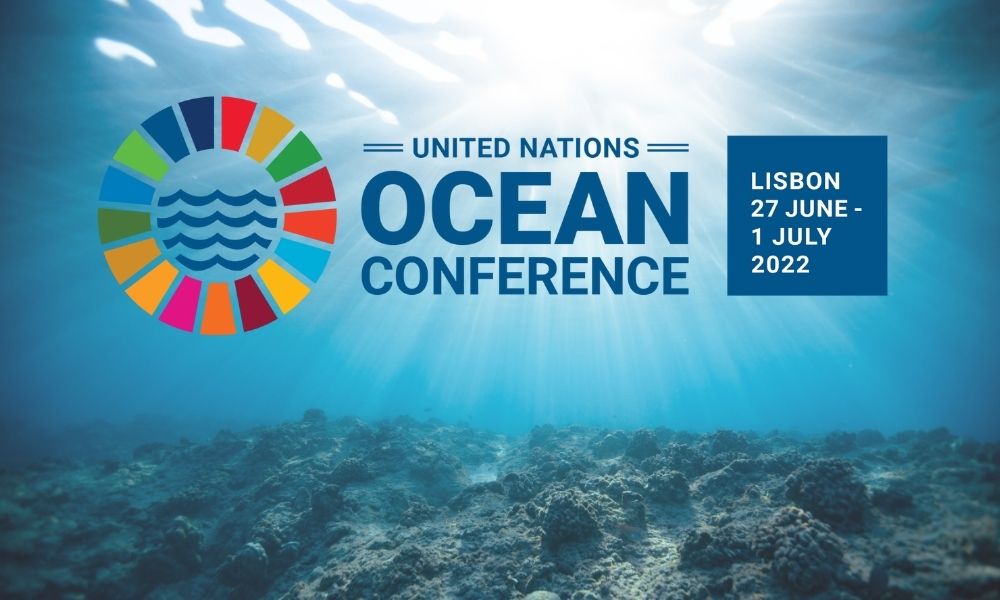By Haruna Gimba
After a week of discussions and events in Lisbon, Portugal, the United Nations Ocean Conference concluded on Friday, with governments and heads of state agreeing on a new political declaration to Save Our Ocean.
Recognizing the past “collective failure” in the Conference’s final declaration, world leaders called for greater ambition to ensure that the dire state of the ocean is addressed, and admitted frankly to being “deeply alarmed by the global emergency facing the ocean.”
At the closing, the UN Under-Secretary-General for Legal Affairs, Miguel de Serpa Soares, commended co-hosts – Portugal and Kenya – for the conference’s enormous success.
“The Conference has given us the opportunity to unpack critical issues and generate new ideas. It also made clear the work that remains, and the need to scale up that work for the recovery of our ocean,” Mr Serpa Soares said, adding that it is essential to now turn the tide.
More than 6,000 participants, including 24 Heads of State and Government, and over 2,000 representatives of civil society attended the Conference, advocating for urgent and concrete actions to tackle the ocean crisis.
Collective failure
Recognizing a “collective failure to achieve Ocean related targets” so far, leaders renewed their commitment to take urgent action and to cooperate at all levels, to fully achieve targets as soon as possible.
Among the challenges the Ocean faces are coastal erosion, rising sea levels, warmer and more acidic waters, marine pollution, overexploitation of fish stocks and decrease of marine biodiversity.
Acknowledging that climate change is “one of the greatest challenges of our time,” and the need to “act decisively and urgently to improve the health, productivity, sustainable use and resilience of the ocean and its ecosystems,” top politicians gathered in Lisbon stressed that science-based and innovative actions, along with international cooperation, are essential to provide the necessary solutions.
Calling for transformative change, leaders stressed the need to address the cumulative impacts of a warming planet, on the ocean, including ecosystem degradation and species extinctions.
Reaffirming that the ocean is fundamental to life on our planet and to our future, the signatories emphasized the particular importance of implementing the Paris Agreement of 2015, and last November’s Glasgow Climate Pact to help ensure the health, productivity, sustainable use, and resilience of the ocean.
“We are committed to halting and reversing the decline in the health of the ocean’s ecosystems and biodiversity, and to protecting and restoring its resilience and ecological integrity.”
The Protecting Our Planet Challenge will invest at least $1 billion to support the creation, expansion, and management of marine protected areas by 2030.
The European Investment Bank will extend an additional €150 million across the Caribbean Region as part of the Clean Oceans Initiative to improve climate resilience, water management and solid waste management.
Portugal committed to ensure that 100 per cent of the marine area under Portuguese sovereignty or jurisdiction is assessed as being in Good Environmental State and classify 30% of the national marine areas by 2030.
Kenya is currently developing a national blue economy strategic plan, inclusive and multistakeholder-oriented. Kenya also committed to developing a national action plan on sea-based marine plastic litter.
India committed to a Coastal Clean Seas Campaign and will work toward a ban on single use plastics.
“We call for an ambitious, balanced, practical, effective, robust, and transformative post-2020 global biodiversity framework”, the Lisbon declaration continued.
Resilient and healthy marine environments are the foundations of climate regulation and sustainable development, with the potential to produce food and energy for billions.
At the conference, more than 150 Member States made voluntary commitments to conserve or protect at least 30 percent of the global ocean within Marine Protected Areas, and other effective area-based conservation measures, by 2030.
“I am impressed by the new commitments [countries made], Mr Serpa Soares said at the closing ceremony, adding that “commitments must be implemented at pace and monitored.”




